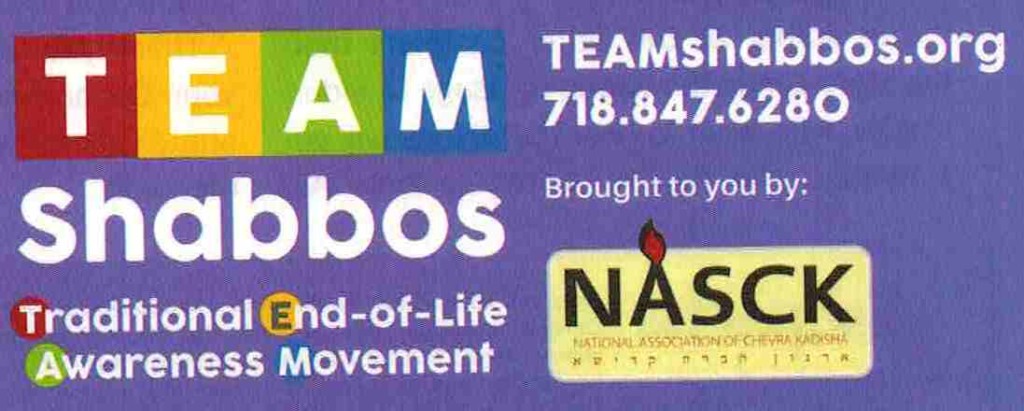Although Bikur Cholim often comes in the form of courtesy visits or phone calls to someone who is just a bit “under the weather”, in a greater sense it includes more serious applications where the person’s recovery is uncertain. In Shulchan Aruch the laws of Bikur Cholim are placed before the laws about end of life, indicating that the more serious application of this mitzvah has life and death ramifications.
The basic mitzvah of Bikur Cholim is learned from a number of sources including the visit that Hashem paid to Avraham in the beginning of Parshas Vayeira during Avraham’s recovery from circumcision. The principle that we have is that we are to endeavor to emulate Hashem. Additionally, many commentaries simply include Bikur Cholim in the general category of “Love your Neighbor as Yourself,” meaning to treat others with the same sensitivity that you would like to be treated with.
Interestingly, Talmudic literature places a heightened emphasis on Bikur Cholim which goes much beyond a courtesy visit and an act of sensitivity. Halacha sees Bikur Cholim as a possible “life saver” as in the case (Nedarim 4oa) where Rabbi Akiva visited a sick student, tidied up, and cared for him, prompting the student to declare, “You have saved my life.” The word “Bikur” is understood Halachicly not to mean “visit” but rather to mean “to check into” as the function of the visit is to see to the needs of the ill person and make sure he/she is properly being attended to.
Additionally, the Ramoh writes (Yoreh Deah 335:4) that to fulfill this mitzvah one must also pray for the patient’s recovery.
Thus, although phone calls are a form of the mitzvah (as they show interest and boost the morale of the patient), complete mitzvah fulfillment involves checking into how the patient is being cared for, and praying for their recovery.
One of the challenging parts of dealing with a patient’s needs is the topic of preparing for the possible passing of the patient. Preparations include,
- Vidduy- The confession of sins and prayer that they be atoned,
- Halachic Living Will- A signed and witnessed document which states that the patient wants end of life decisions to follow Jewish Law (Halacha), and that Halacha should be the guide for afterlife activities including proper burial.
- Halachic Estate Will- This is a legal tool which is done in addition to a secular will, to ensure that the secular will will be compatible with Halacha and enforceable.
- Review life encounters and address unfinished financial or emotional issues with others.
The reason these topics are so delicate is because bringing them up can be uncomfortable and possible dishearten the patient by giving the impression that his death is imminent. It is best to have the right person bring up these topics earlier than later, and to do so by saying that we like to discuss these things while we can do it thoughtfully and without pressure, well in advance of the time that it will be needed. In fact, many people will have a Will in place decades before it is actually needed, and many people will recite the Viduy (confession) numerous times during their lifetime, whenever they go into the hospital for a major surgery.
The basic text of Viduy is: I acknowledge before You, G-d, that my recovery is in Your hands. May it be Your will to grant me a complete recovery. Many have said Viduy and lived. In the merit of my Viduy may I be granted a full recovery. May my troubles be an atonement on all my sins. Place my lot in Gan Eden, and have me merit the World to Come which is reserved for the righteous. (Shulchan Aruch, Yoreh Deah 338:2)
Sometimes a visitor will be asked for advice regarding a patient’s health care. It is important to be aware that from a Torah perspective we require that a patient continue to receive oxygen, nutrition/ hydration, and basic antibiotics even in end of life situations. Also, the laws that apply at the end of life are very complex and questions should be asked of a competent Halachic authority. One free service that is available is called Chayim Aruchim http://www.chayimaruchim.com/. Their 24 hour hot line is 718-301-9800.
A Halachic Medical Directive is a document which the patient should fill out (preferably before a significant health situation) in which he/she outlines the process by which they would like decisions regarding their health care to be made. Instead of making exact decisions ahead of time (for scenarios which are virtually impossible to predict) a person identifies the people and Rabbi who will consult to make the decisions if they cannot. This document, in conjunction with a meeting with the Rabbi will enable those identified to make decisions to do so in accordance with the sensitivities which the patient expressed.
Linked here is the Health Care Directive for Maryland: maryland_halachic_medical_directive
Another area that should be attended to is the area of Wills and Estates because according to Torah law the inheritance goes directly to specific people identified in the Torah. If one wants other people to inherit, one must create a gift-like status so that the money is acquired by the intended recipient before the passing and Torah inheritance takes affect. This is particularly relevant if a man would like his wife to inherit, or a parent would like daughters to be included. According to Torah law a wife and daughters are provided for in certain ways, but they are not necessarily provided an inheritance share. Click here for a sample Halachic Will Instrument. A Rabbi can help with creating an appropriate document and gift mechanism to ensure that the patient’s wishes can be fulfilled.
 For more information on end of life issues,including the EMES Card, please visit www.nasck.org/
For more information on end of life issues,including the EMES Card, please visit www.nasck.org/

0 Comments